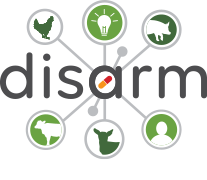On farm hatching of broiler chicks to improve broiler welfare, health and performance and lower the need for antibiotics in broiler production.
Conventional broiler chicks that are transported to the broiler farm shortly after birth can suffer from the stress of handling in the hatchery, feed and water deprivation, and during the transport. This stress is detrimental for the birds’ immunological and physiological development resulting in less resilient birds.
On-farm hatching is an innovative concept preventing the burden of this stress because eggs which have been incubated for 18 days are being hatched directly on the broiler farm. The hatched chicks have instant access to water and feed, allowing for better development of their intestines and organs. This concept results in healthier and more robust animals that are more resilient to disease pressure. The concept is available through different suppliers offering specific systems (Nestborn®, One2Born® and X-treck (Vencomatic)), varying in labour requirements, ease of use and investment.
Depending on the farm-specific availability of labour, capital and desired production scheme different solutions can be interesting. On-farm hatching needs to fit in the production schedule since you need extra time to prepare your shed for the next cycle which can create a peak in labour requirements. Additionally, some extra costs for heating the shed three days earlier will be incurred. Still, savings on medicine use are possible as well as improvements to the technical performance of the birds which may help to offset additional costs. Field trials in Flanders on two farms transitioning from conventionally hatched broilers to the NestBorn concept have shown a reduction in their antibiotic usage for the NestBorn chicks compared to conventional broiler chicks. Antibiotic use measured as mg active substance per stocked chicken decreased by 62.76% on average and on 18 out of 27 production cycles no antibiotics were used in the NestBorn system.
